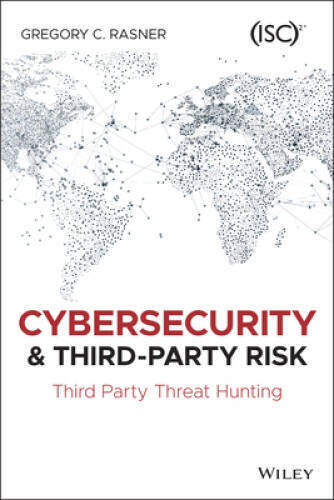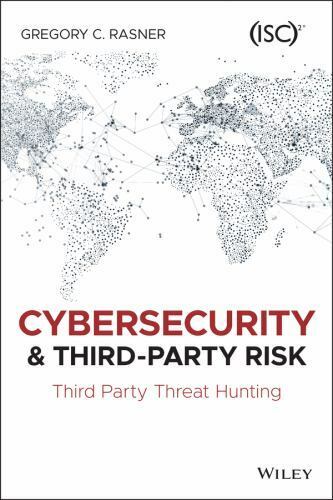A soon-to-expand prohibition on nursing homes’ use of third-party financial guarantees could lead to more operators using lawsuits to collect as residents’ unpaid debt becomes a bigger financial concern.
That warning comes as regulators move to target admission and billing policies that mimic financial guarantees — even if they don’t technically require third-parties to “guarantee” they’ll pay for a friend, family member or other associate’s stay.
The Centers for Medicare & Medicaid Services has long forbidden the use of such third-party guarantees in nursing homes. But the agency now wants surveyors to scrutinize compliance more intensely, possibly further impeding collections related to care already delivered.
New CMS guidance on the issue is scheduled to go into effect March 24.
More restrictions on the ability of facilities to secure third-party guarantees to defray financial risk “creates a very tricky situation,” Callan Stein, a partner with Troutman Pepper Locke, told McKnight’s Long-Term Care News Monday.
“It is becoming harder and harder for facilities to mitigate the risk of resident payment shortfalls. As a result of this, we may come to see more frequent legal collection actions by nursing homes, for example, against the estate of a resident who passes away with a large outstanding balance owed,” he added. “It would also not be surprising to see nursing homes more frequently writing off bad debt, as permitted, for tax benefits.”
Under the expanded CMS interpretation, any language that seeks to hold someone beside the resident personally responsible could be problematic. And nowhere does the word “guarantee” need to appear to land a provider in regulatory hot water.
“Language can be noncompliant even if it does not specifically reference a ‘guarantee’ by a third party. Any language contained in an agreement that seeks to hold a third party personally responsible for paying the facility would violate this requirement,” CMS wrote in its update.
The guidance also now includes specific examples of noncompliance. Those include:
• Language that holds both the resident and the representative or other individual jointly responsible for any sums due to the facility;
• Language that holds the representative or other third-party personally liable for breach of any obligation in the agreement, such as failing to fully complete a Medicaid application on time;
• Language that implies the resident could be discharged if the representative does not voluntarily agree to personally pay to prevent the discharge; and
• Language that holds the representative personally liable for any amounts not paid to the facility in a timely manner because the representative or other individual did not provide accurate financial information or notify the facility of changes in the resident’s financial information.
Also of note: CMS said such language is noncompliant if it appears in the main document that a facility uses as its admission agreement or in other documents that are signed at admission. In addition, a facility cannot use financial guarantees in agreements regarding a resident’s continued stay.
Cosigning for healthcare?
Facilities can continue to “request and require a resident representative who has legal access to a resident’s income” to sign a contract saying they will use that resource to pay for care, without incurring personal financial liability.
But the updated guidance also explicitly prohibits the facility from making that request if an individual “does not actually have legal access to the resident’s funds.”
“The distinction makes sense because it’s not fair to expect someone to cosign. How much are they potentially liable for? We’re talking about nursing home expenses,” Eric Carlson, director of long-term services and supports advocacy at Justice in Aging, said during a Wednesday webinar on the new guidance.
“If you cosign for a car, you know what you’re responsible for: whatever the price of the car is. But if you cosign on a nursing facility admission agreement, what’s the bill going to be? $10,000, $50,000? You see bills of this size, and a third party shouldn’t be stuck with financial obligations like that,” he added.
The expanded CMS interpretation aligns with other measures by the federal government that have limited long-term care providers’ ability to collect payment for services.
In 2022, Consumer Financial Protection Bureau Director Rohit Chopra encouraged families to file complaints with his agency and at the state level. Chopra also asked nursing homes to “confidentially inform” state or federal enforcement agencies about the illegal practices of others to help “address the range of harms associated with medical debt.”
Early this month, Chopra’s agency finalized a rule removing about $49 billion in medical bills from Americans’ credit reports and banned the inclusion of medical bills on credit reports. The move is seen as limiting healthcare providers’ ability to collect on some debt, given fewer implications on borrowers’ credit scores.
More legal efforts ahead?
The latest pressure from CMS is unlikely to help, Stein said.
“Often, when a resident builds up a large outstanding balance, the facility is faced with the Hobson’s choice of either taking steps to try to help the resident transfer out of the facility or continuing to allow the resident to incur debt that may be unrecoverable, especially if the resident is in poor health or passes away suddenly,” he said.
He recommended that nursing homes enhance their initial resident screening processes to evaluate the ability of patients to pay and to develop and uniformly implement robust revenue cycle procedures to stay on top of billing.
“It may also be that some facilities begin to take a more aggressive approach during resident onboarding, for example by requiring residents to pay a security deposit or commit other security interests to cover unpaid balances,” Stein added. “This is not a trend we have seen utilized much to date, and facilities should very carefully consider such a requirement and discuss it with legal counsel before any implementation.”
While CMS is clear that deposits can be charged to non-Medicaid residents prior to admission, courts have been split on nursing homes’ ability to chase debt after a stay has started.
Consumer advocate Carlson said he’s seen some nursing homes turn to lawsuits to go after a “responsible party,” which was seen as triggering the Consumer Financial Protection Bureau’s involvement on the issue.
“Assuming down the road the bill isn’t paid, then the nursing facility files suit against the third party … and says in [the nursing home’s] defense, well, this isn’t a cosigner,” Carlson said. “What we’re doing is we’re suing the adult daughter, let’s say, for her breach of the admission agreement. She was obligated to pay us, to use the resident’s money to pay us or to make sure that there was Medicaid eligibility, and that didn’t happen.”
Carlson said that using the courts to achieve the same goal as activities protected by the ban on third-party guarantees has led to a mixed bag of legal decisions; only some cases end up tossed. Surveyors weeding out some of those tactics upfront could help address what he calls “a bad state of affairs.”
“Nursing facilities are trying to sneak around the federal law, and the federal government here is saying, ‘No, that’s not going to work,’” he said. “‘We’re going to consider this non-compliant.’”
CMS has stated that nursing homes must ensure that residents are not being improperly charged for services covered by third-party payers. This includes making sure that residents are not billed for services that are covered under their insurance plans or Medicare benefits.
Facilities are also being reminded that they must accurately report their residents’ insurance information to CMS in order to receive proper reimbursement for services provided. Failure to do so could result in penalties or even loss of participation in Medicare and Medicaid programs.
This updated guidance comes as part of CMS’s ongoing efforts to improve transparency and accountability in the nursing home industry. By cracking down on improper billing practices and ensuring that residents receive the care they are entitled to, CMS is working to protect some of the most vulnerable members of our society.
Nursing homes that are found to be in violation of these policies may face fines, sanctions, or even closure. It is crucial that facilities review their third-party pay policies and ensure that they are in compliance with CMS guidelines to avoid any potential repercussions.
Overall, this updated guidance serves as a reminder to nursing homes that they must prioritize the well-being of their residents above all else. By following CMS’s regulations and guidelines, facilities can ensure that they are providing high-quality care to those who need it most.
Tags:











